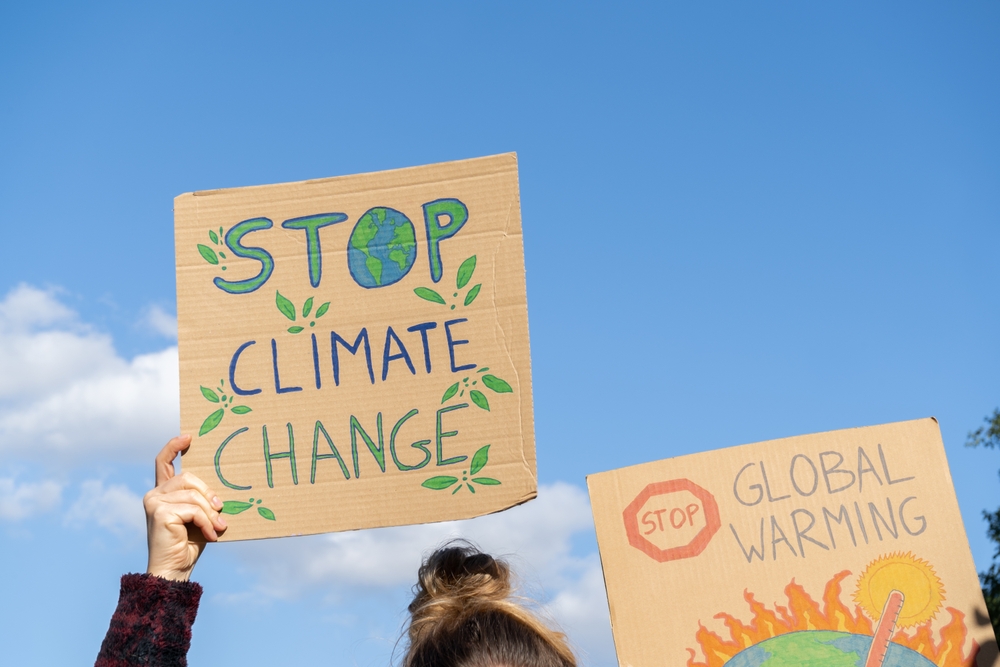Sustainability is more than just a buzzword for Gen Z and Millennials—it’s a lifestyle. While previous generations may have overlooked certain environmental practices, these younger cohorts have made planet-saving habits second nature. With the planet facing unprecedented challenges, it’s clear that small, consistent actions can lead to significant change. Here are 13 habits Gen Z and Millennials have embraced in their daily lives that Boomers might have missed.
1. Embracing Plant-Based Diets

You’ve probably noticed more plant-based options on menus and in grocery stores, and there’s a good reason for that. Gen Z and Millennials are leading the charge in reducing meat consumption, understanding its significant impact on the environment. According to a study by Oxford University, adopting a plant-based diet could reduce food-related emissions by up to 70%. This generational shift is not just about food—it’s a lifestyle change that prioritizes planetary health.
For many, switching to a plant-based diet is a seamless transition fueled by a wealth of information and innovative culinary options. While Boomers may view this as a fad, younger generations see it as a sustainable choice. They’re exploring everything from tofu and tempeh to new meat alternatives that are both delicious and eco-friendly. It’s not just about saving the planet, but also about expanding culinary experiences and improving personal health.
2. Engaging In Thrift and Upcycling

Gone are the days when second-hand was synonymous with second-best. Gen Z and Millennials have revolutionized the thrift industry, turning upcycled fashion into a stylish norm. By repurposing old clothes and shopping second-hand, they’re minimizing waste and reducing the demand for fast fashion. This habit is about creating a unique style while supporting sustainability.
The appeal doesn’t stop at clothing; upcycling extends into home décor and furniture as well. Young people are finding creative ways to refresh old items, breathing new life into what others might discard. This approach not only reduces landfill waste but also saves money and fosters creativity. It’s a win-win for both your wallet and the planet.
3. Reducing Single-Use Plastic

Single-use plastics are slowly becoming a thing of the past, thanks to the efforts of younger generations. Gen Z and Millennials are advocating for reusable alternatives, from stainless steel straws to beeswax wraps. National Geographic reports that nearly 18 billion pounds of plastic waste enter the ocean each year, prompting a global movement to curb this trend. This habit is about both personal responsibility and collective action to protect marine life.
You’ll find them carrying reusable water bottles, shopping bags, and coffee cups as badges of honor. The shift away from plastic isn’t just about aesthetics or convenience; it’s a conscious effort to minimize environmental impact. By choosing to reuse, they are setting a standard that challenges the throwaway culture. Every small action contributes to a larger shift towards sustainability.
4. Using Eco-Friendly Transport

Ditching the car for a bike or bus isn’t just about saving money on gas. For Gen Z and Millennials, it’s about reducing their carbon footprint and embracing a healthier lifestyle. Public transportation and cycling are not only cost-effective but also environmentally friendly choices that help reduce traffic congestion. This shift is reshaping urban planning and transportation infrastructure.
Riding a bike or hopping on a bus is increasingly seen as a smart choice rather than a compromise. Cities are responding by improving bike lanes and public transit options, making it easier for everyone to make greener choices. This habit ties into the broader movement towards sustainable cities and communities. It’s a statement that prioritizes both the planet’s health and personal well-being.
5. Shopping Sustainable Brands

When it comes to shopping, younger generations are putting their money where their values are. They choose to support brands that prioritize ethical practices and sustainability. According to Nielsen, 73% of Millennials are willing to spend more on sustainable products. This conscious consumerism is driving companies to reconsider their environmental and social impact.
Shopping decisions are based on more than just product quality; they’re about aligning with brands that reflect personal ethics. These generations actively research how products are made, demanding transparency and accountability. By favoring ethical brands, they are encouraging wider industry changes. It’s about making informed choices that contribute to a better world.
6. Advocating for Energy Efficiency

Energy efficiency isn’t just for engineers and tech enthusiasts—in fact, it’s a daily priority for Gen Z and Millennials. They understand the importance of reducing energy consumption, both for the environment and their utility bills. Simple actions, like using LED bulbs and energy-efficient appliances, make a big difference. This habit reflects a broader understanding of climate change and resource conservation.
Technology plays a significant role in their efforts, with smart home devices that monitor and reduce energy use. These tools make it easy to manage consumption and adopt greener habits. The focus on energy efficiency extends beyond individual households, influencing community and city planning. It’s a proactive approach to reducing carbon emissions and conserving natural resources.
7. Engaging in Climate Activism

For Gen Z and Millennials, climate activism isn’t just a trend—it’s a necessity. They’ve taken to the streets and the internet to voice their concerns about environmental issues. A report by the Pew Research Center highlights that younger generations are more likely to participate in environmental protests and advocacy. This activism is fueled by a sense of urgency to address climate change head-on.
Their activism isn’t limited to protests; it’s about integrating sustainability into everyday life. They harness social media to spread awareness and mobilize global communities. This digital activism complements traditional methods, amplifying their impact. Engaging in climate activism is about taking responsibility and inspiring action on a global scale.
8. Opting For a Minimalist Lifestyle

Less is more in the minimalist lifestyle embraced by many Gen Z and Millennials. This shift toward minimalism is about decluttering life from unnecessary possessions and focusing on what truly matters. It’s a response to consumer culture, emphasizing quality over quantity and experiences over things. The minimalist approach is both a mental and environmental reset.
Living minimally doesn’t mean sacrificing comfort or style; it’s about intentional living. This habit encourages a simpler, more fulfilling lifestyle by reducing waste and consumption. Minimalism inspires thoughtful purchases and sustainable living, creating space for meaningful experiences. It’s a conscious choice that maximizes happiness while minimizing environmental impact.
9. Composting Food Waste

Composting is a habit that turns waste into a resource, and younger generations are leading the way in making it mainstream. By composting food scraps, they reduce landfill waste and create natural fertilizer that enriches the soil. This practice is both an individual and community effort, with many cities offering composting programs. It’s a simple but powerful way to contribute to a circular economy.
For those new to composting, the process can be as easy as setting up a bin at home. It connects daily life to broader ecological systems, reinforcing the importance of sustainability. Composting also supports local food systems by nurturing healthier soil for agriculture. It’s a hands-on approach to reducing waste and promoting environmental health.
10. Utilizing Social Media For Change

Social media is more than just a platform for selfies; it’s a powerful tool for change. Gen Z and Millennials are using digital platforms to spread awareness and mobilize action for environmental causes. This digital activism allows them to reach a global audience, transcending geographical boundaries. It’s a modern approach to activism that harnesses technology for the greater good.
With campaigns and viral challenges, they engage people of all ages in meaningful conversations about sustainability. Online petitions and crowdfunding initiatives have become effective ways to support environmental projects. Digital activism empowers people to take part in movements from their homes, making participation more accessible. It’s a testament to the power of connectivity and community in driving change.
11. Choosing Renewable Energy

Renewable energy isn’t just a policy issue; it’s a personal choice for many young people. Gen Z and Millennials are increasingly opting for renewable energy sources like solar and wind in their homes. This decision is driven by a commitment to reduce reliance on fossil fuels and lower carbon emissions. Choosing renewable energy has become part of their identity as eco-conscious citizens.
They embrace technology that supports this shift, from home solar panels to community wind farms. By advocating for and investing in renewables, they influence market trends and policy decisions. This habit reflects a broader commitment to a sustainable future and a willingness to invest in long-term solutions. It’s about harnessing natural resources responsibly to ensure a healthier planet for future generations.
12. Practicing Conscious Consumerism

Conscious consumerism isn’t just about buying less; it’s about buying better. Gen Z and Millennials are redefining consumption by prioritizing ethical and sustainable choices. They understand that each purchase is a vote for the kind of world they want to live in. This mindset challenges traditional consumer behavior and encourages more thoughtful decision-making.
Research and transparency are key components of this habit, as they seek products that align with their values. Supporting local businesses and fair-trade products is part of their strategy to reduce environmental impact. Conscious consumerism empowers people to drive change through everyday purchases. It’s a holistic approach to consumption that considers the social and environmental footprint of each product.
13. Reducing Water Usage

Water conservation is a critical issue that hasn’t gone unnoticed by Gen Z and Millennials. They’re adopting habits that reduce water waste, such as shorter showers and using water-efficient appliances. This awareness stems from a recognition of global water scarcity and its impact on communities. By prioritizing water conservation, they contribute to the sustainable management of this precious resource.
Technological solutions, like smart irrigation and water-saving fixtures, support their efforts. Education and awareness campaigns further reinforce the importance of this practice. Conserving water isn’t just about personal savings—it’s about ensuring access to clean water for all. It’s a proactive step towards environmental stewardship and resource preservation.
